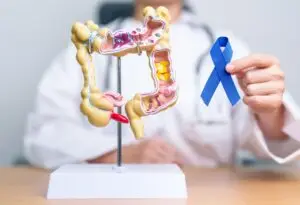Why getting quality sleep and having balanced hormones are crucial for women maintaining optimal health throughout their life.
There is nothing like a good-night’s sleep. You know that feeling, refreshed, rested, ready to take on the day. More than just improving your mood and physical well-being, sleep is essential for many of the body’s functions.
Women especially depend on sleep for hormone function because the two are interrelated. Throughout a woman’s life, she experiences many hormonal changes beginning with puberty, then pregnancy and finally menopause. These events impact a woman’s hormone-production and affect her sleep.
Sleep Disturbances and Hormone Disruption
According to the Sleep Foundation, women are more likely to have sleep problems than men even though they tend to sleep for a longer each night than men and nap throughout the day.
This is because women are more likely to get lower quality of sleep, due to waking up during the night to care for others or because they experience hormone-related pain or discomfort.
Poor quality of sleep in women disrupts hormone levels and in turn, out-of-balance hormones affect the ability to have quality sleep. They two go hand in hand. You need to have balanced hormones for restful sleep and you need quality sleep for hormone balance.
Sleep During Menstruation, Pregnancy and Menopause
Beginning in puberty, estrogen, luteinizing hormone and follicle-stimulating hormone increase, which lead to physical changes in a woman’s body and the onset of menstruation. During menstruation each month, estrogen and progesterone levels change and are accompanied by physical discomforts like cramps, body-temperature changes and migraines that affect the quality of sleep.
Similarly, during pregnancy hormone levels change yet again and come with the aches and pains of your growing body. The further along women get into pregnancy and in post-partum, the more likely it is that they continue to experience sleep deprivation and disruption.
In menopause, estrogen levels begin to decrease drastically eventually leading to the end of menstruation. With the ovaries no longer producing estrogen, women experience night sweats, migraines, body aches and pains, and more.
During each of these stages, hormonal changes come with a variety of uncomfortable symptoms including cramps, bloating, restless legs, migraines, hot flashes, body aches and pains, heartburn and more.
These impact a woman’s ability to fall asleep, stay asleep and the time that a woman spends in restful sleep each night.
In the long-run, the lack of restful sleep will only further affect the hormonal imbalance symptoms and can cause problems with memory and concentration, mood and mental health, and other more serious chronic sleep disorders.
Interventions for More Restful Sleep and Hormone Balance
Since sleep and hormones are interrelated, you need to know where to start. Is it a sleep condition that you are suffering from or is it a hormone-related issue?
Working with an integrative and functional medicine provider, you are able to look at the big picture of what is disrupting your sleep and hormone issues, and get to the root cause.
There are options like bioidentical hormone replacement therapy that have been shown to lessen the side effects of hormonal imbalance in women and thus improve sleep. Additionally, assessing sleep-related disorders that go beyond the typical sleep test, which may be contributing to your hormonal imbalance.
Find a hormone specialist nearby and schedule a consultation today!






